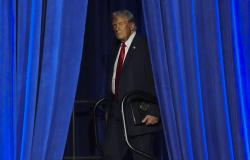ISpeaking at this event, William Bain, head of trade policy at the British Chambers of Commerce, recalled that the continuity agreement between the United Kingdom and Morocco has enabled a significant increase in bilateral trade, which today reaches 3 .8 billion pounds sterling per year. This growth is accompanied by a diversification of goods and services exchanged, testifying to the solidity and dynamism of this relationship.
“We have a strong relationship that we want to strengthen, particularly in strategic areas like foreign direct investment and digital trade,” Bain said. “Digital trade, in particular, represents a major opportunity to improve the fluidity of exchanges of goods and services between our two countries. »
Separately, Bain said the UK is currently consulting on its trade strategy. A key priority is reducing trade barriers with its strategic markets, including Morocco. “We are exploring concrete ways to improve customs procedures to reduce port delays and costs, as well as strengthen cooperation on technical regulations,” he said. These adjustments could be incorporated into bilateral or multilateral agreements, such as the WTO agreement on electronic commerce.
He also highlighted the importance of aligning with the growing dynamics in Africa, notably through the African Continental Free Trade Area, which reflects increased ambition and confidence in trade in services. “This potential must be integrated into our trade relations with Morocco,” Bain said.
Finally, Bain highlighted the significant potential for infrastructure investment. “Current levels of inward and outward foreign direct investment are good, but there is significant room for improvement. Many UK companies are keen to invest in high quality, stable infrastructure projects in countries like Morocco, with which we have had a mutually beneficial relationship for decades,” he said.
“Morocco is today in the UK’s top 50 trading partners, and we see a promising future to further deepen and diversify our trade,” Bain concluded.
Asked about the main recommendations of the Policy Paper published by the Moroccan Institute of Strategic Intelligence (IMIS), Najib Benamour, secretary general of the said institute, highlighted several axes:
∙ Diversification of cooperation sectors: going beyond traditional sectors such as agriculture and infrastructure to include technology, renewable energy and education.
∙ Optimization of logistics chains: simplify customs processes and reduce delivery times.
∙ Encouragement of cross-investments: create innovative financial mechanisms and strengthen the business climate.
Benamour also stressed that a comprehensive free trade agreement would provide significant benefits for Moroccan and British businesses. It would facilitate expanded access for Moroccan companies to the British market, provided they respect international standards, while positioning Morocco as a strategic platform for British companies wishing to access African markets. In addition, the reduction of tariff and non-tariff barriers would strengthen the solvency of companies, thus improving their liquidity and their investment capacity.
Finally, Sofia Akhtar, Head of Trade Policy and Market Access – Department of Business and Commerce, highlighted the rich history and growing potential of trade relations between the UK and Morocco. “The links between our two kingdoms
span centuries, since the signing of the first Anglo-Moroccan treaty in 1625. Today, these strong historical foundations support thriving economic cooperation,” said Akhtar.
Among recent initiatives, the revision of agricultural tariffs, launched in 2023, aims to further liberalize trade in agricultural products and remove non-tariff barriers, which will strengthen mutual access of agricultural products to markets.
Akhtar also highlighted priority sectors for the bilateral partnership, including renewable energy, education, infrastructure and digital technologies. She highlighted the launch of the Moroccan campus of Centry University in Casablanca and the opportunities offered by large-scale projects, such as investments linked to the 2030 World Cup and Morocco’s energy transition initiatives, including the objective is to produce 52% of its electricity from renewable energies by 2030.
“UK companies are already working with Moroccan partners in key areas, such as green hydrogen and clean technology. This cooperation demonstrates the immense potential of our partnership to respond to the challenges of today and tomorrow,” she said.
In conclusion, Akhtar recalled that the United Kingdom’s industrial strategy, focused on sustainable growth and innovation, provides an enabling framework to strengthen and modernize this strategic partnership.
This webinar demonstrated the shared ambition of the two countries to deepen their economic relations and explore new and strategic opportunities for the years to come.






